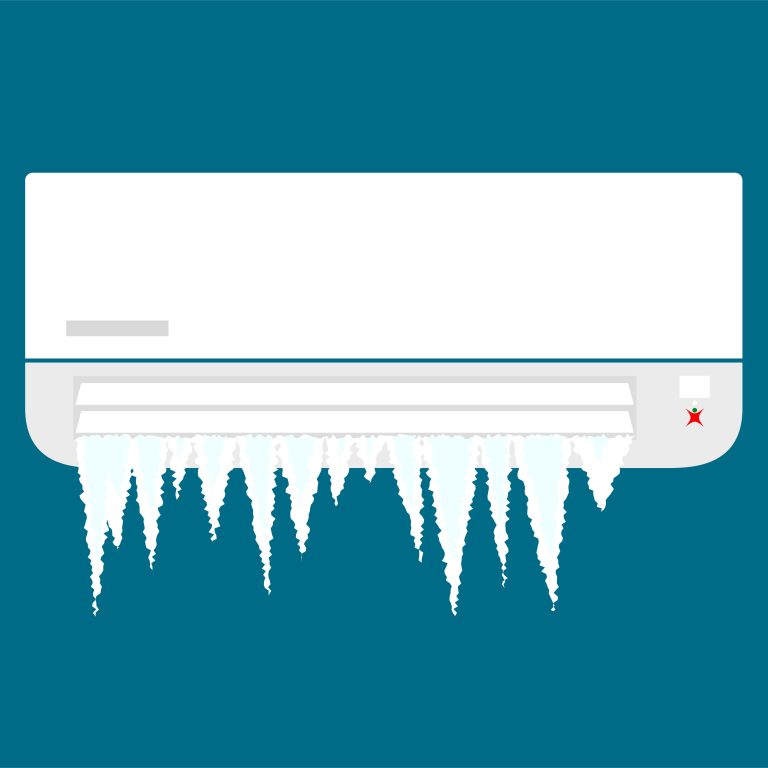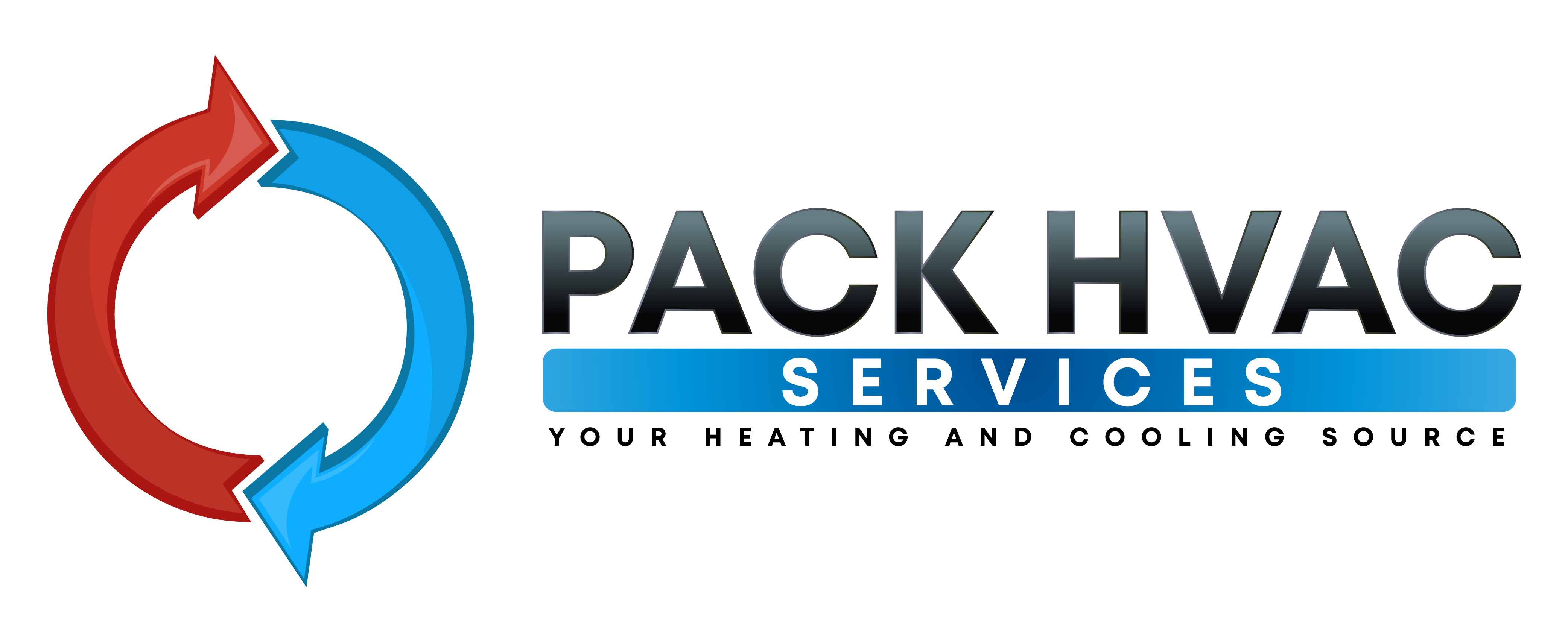
Have you found ice in your AC? Relax. It is surely a shocking sight but a common occurrence in air conditioners. An AC or air conditioner is a self-contained system with many interdependent and interconnected parts. A small fault in any of these parts can result in a major issue, like ice in the AC unit. So, here, you might think about how this happened in the first place and what possible steps I can take to get the AC to start working normally. If this is on your mind, our post has answers.
Work Cycle of Air Conditioning Unit
The common concept of how air conditioners work is by blowing cool air into the room. However, it is sad to break this childhood myth by saying it is not the case. The real work cycle of an air conditioner involves removing the warm air from the building, cooling it with the help of refrigerant, and then releasing the cool air, providing the cooling effect. The air conditioner works in 3 steps, which are as follows:
Step 1: Heat Absorption
- Warm air from the room is drawn into the air conditioner unit.
- This warm air passes over cold evaporator coils containing refrigerant.
- The refrigerant absorbs heat from the air, cooling it down.
- The now-cooled air is blown back into the room through vents.
2. Heat Rejection
- The refrigerant, now warmed from absorbing heat, is compressed by the compressor.
- The compressed refrigerant is pumped to the outdoor condenser coils.
- The heat is released from the refrigerant to the outside air through the condenser coils.
- The refrigerant cools down and returns to a liquid state.
3. Refrigerant Cycle
The cooled liquid refrigerant flows through an expansion valve, where its pressure and temperature drop significantly.
The low-pressure refrigerant enters the evaporator coils, ready to absorb heat again, starting the cycle anew.
Why Does an AC Compressor Freeze?
A common cause of AC compressor freezing is a glitch that disrupts the functioning of the evaporator. The refrigerant causes excessive cooling, resulting in AC ice formation. If your AC’s coils are frozen, something is off with your AC. To diagnose and fix your AC’s issue, you need to understand what is causing it to freeze. The two main things that make your AC to freeze include:
1. Closed Airflow
Air conditioners require regular airflow to prevent humidity from reaching coils and resulting in freezing. However, uncleaned or clogged filters can disrupt the flow of air and freeze the system. For this reason, HVAC experts suggest cleaning the filters of your air conditioning unit once every three months.
2. Refrigerant Leakage or Mechanical Problems
Like other machines, your air conditioner has electronic parts that might get stuck or shut down when overused. Filters can get clogged, fans can stop working, and refrigerants leak. If any of these issues result in low pressure in your AC, it can freeze.
What to Do When AC Freezes Up?
Finding ice in your air conditioner is surely a moment of worry. However, knowing exactly what to do in such a case can save your AC from further freezing and elevating your life span. We’re listing what potential steps you can take to fix your AC.
Note: If the listed steps do not work for you, we suggest you hire an experienced HVAC professional to help fix them.
Step 1: Let the Ice Melt
Once you discover ice in your AC, the first thing to do is to turn it off and let it defreeze. Avoid turning on the AC before the ice melts, and the unit dries down completely. Using the AC when frozen can stress the compressor, so don’t do that. The important point is that the compressor is your air conditioner’s most vital yet expensive part. Turning the AC on while frozen can strain the compressor and lead to high-priced maintenance or costly repair. Also, avoid breaking the ice and let it melt and dry down gradually. If you are forced to break the ice, you may end up breaking the parts of your AC. Most of the time, letting the AC ice melt and the AC unit dry before turning it on makes it start working normally again.
Step 2: Try to Fix It
Below, we’ve listed some ways you can try independently without a professional’s help. We hope they work for you.
1. Access the Filters and Replace Them
The air filter in your air conditioner is responsible for processing the air to be cool yet clean. However, for optimal functioning, these filters need to be changed and cleaned from time to time. During the summer season, try cleaning the filter of your AC every two weeks and changing it every three months.
2. Check Fan & Thermostat Settings
If you are using the AC in cool weather and your current temperature is lower, the AC might not be able to transfer heat from inside to outside. Likewise, if your AC fan speed is low, it can strain your air conditioning unit and make it difficult to maintain the set temperature. So, how will you fix this? Increase the speed of your fan in the summer days to ensure the required flow of air.
3. See If You Are Using the Air Conditioner On Cold Nights
If you use your air conditioner in the winter or on relatively cooler summer nights, you can expect to see a frozen AC. Air conditioners are typically made to function at specific temperature thresholds. So, when you turn on the AC on cooler nights, the refrigerant gets cold extensively and freezes all the moisture, which you can later witness as ice in the AC.
4. Old or Poor-quality Compressor
An old or poor-quality compressor is the worst scenario. It means your compressor cannot compress the refrigerant and freezes the coils. A non-experienced person cannot fix this cause and requires expertise and skills. For this, you can call an experienced HVAC professional.
Hire Pack HVAC Professionals to Deal With Frozen ACs in Baton Rouge.
Are you seeking affordable HVAC maintenance or repair services in Baton Rouge? Pack HVAC team is the right choice for you. With no hidden charges, a quick response team, and the right expertise and experience, we are all set to help residents like you have a breath of peace while we service your HVAC appliances. Call us now to schedule a consultation or hire our expert right away.
